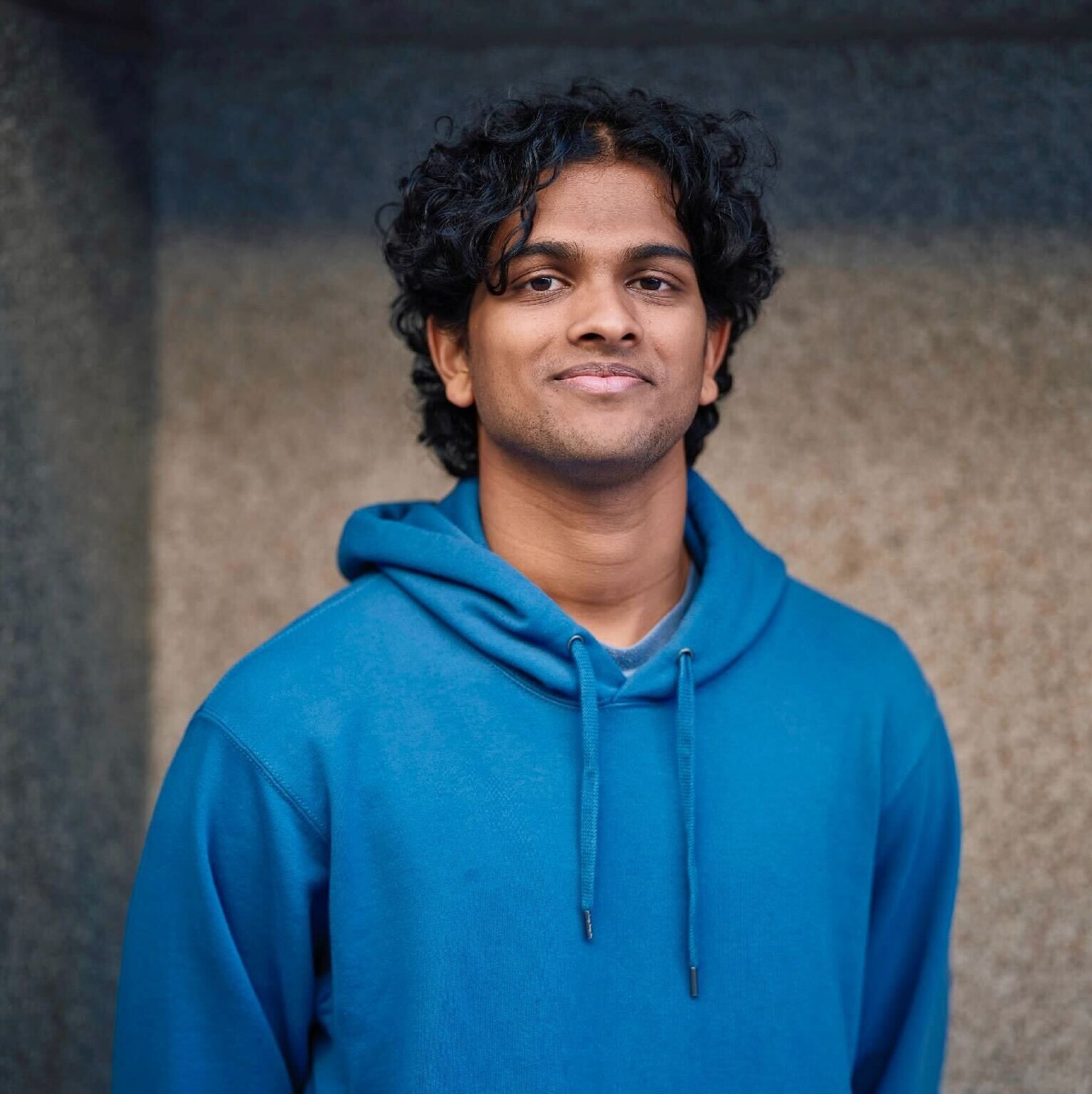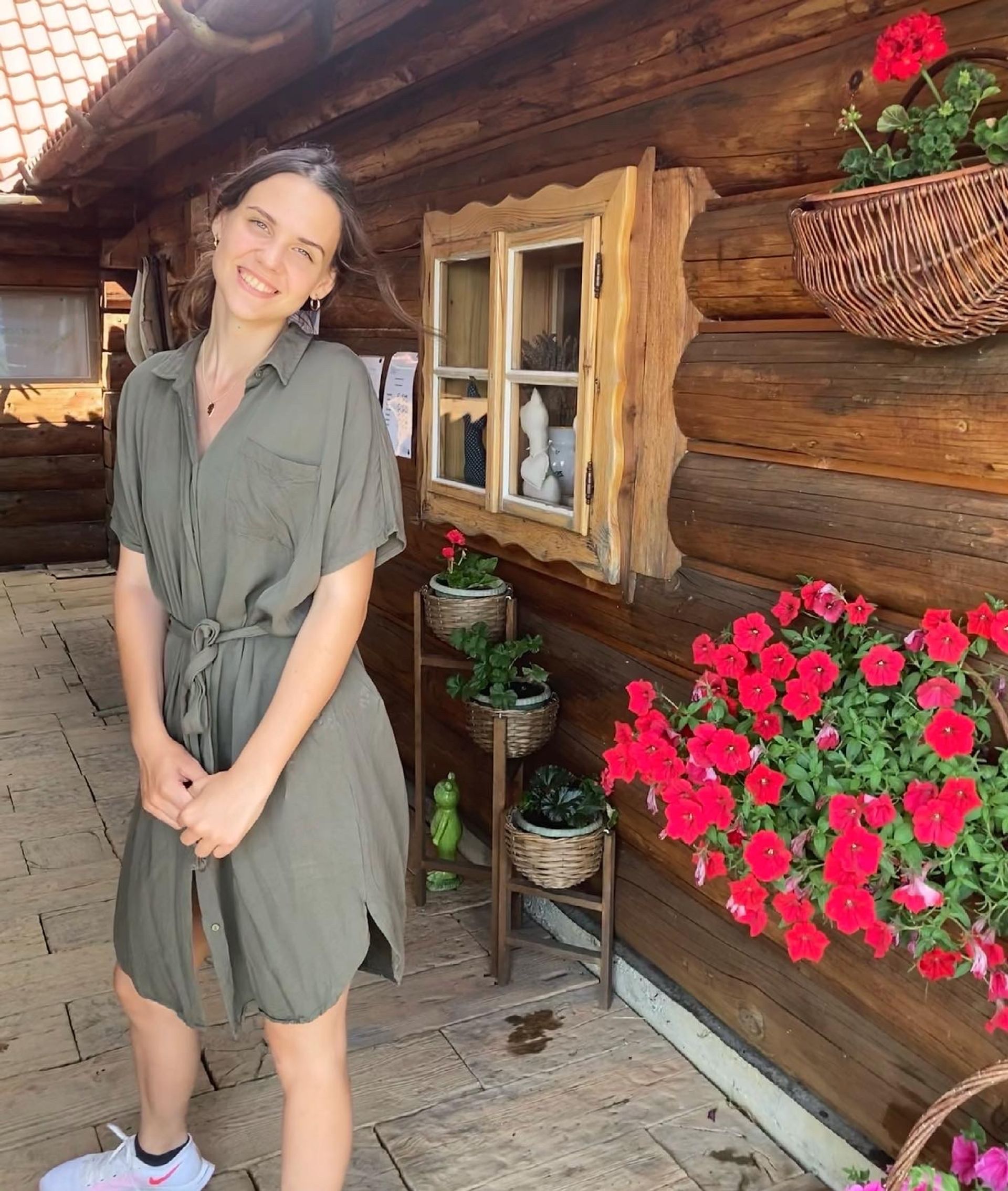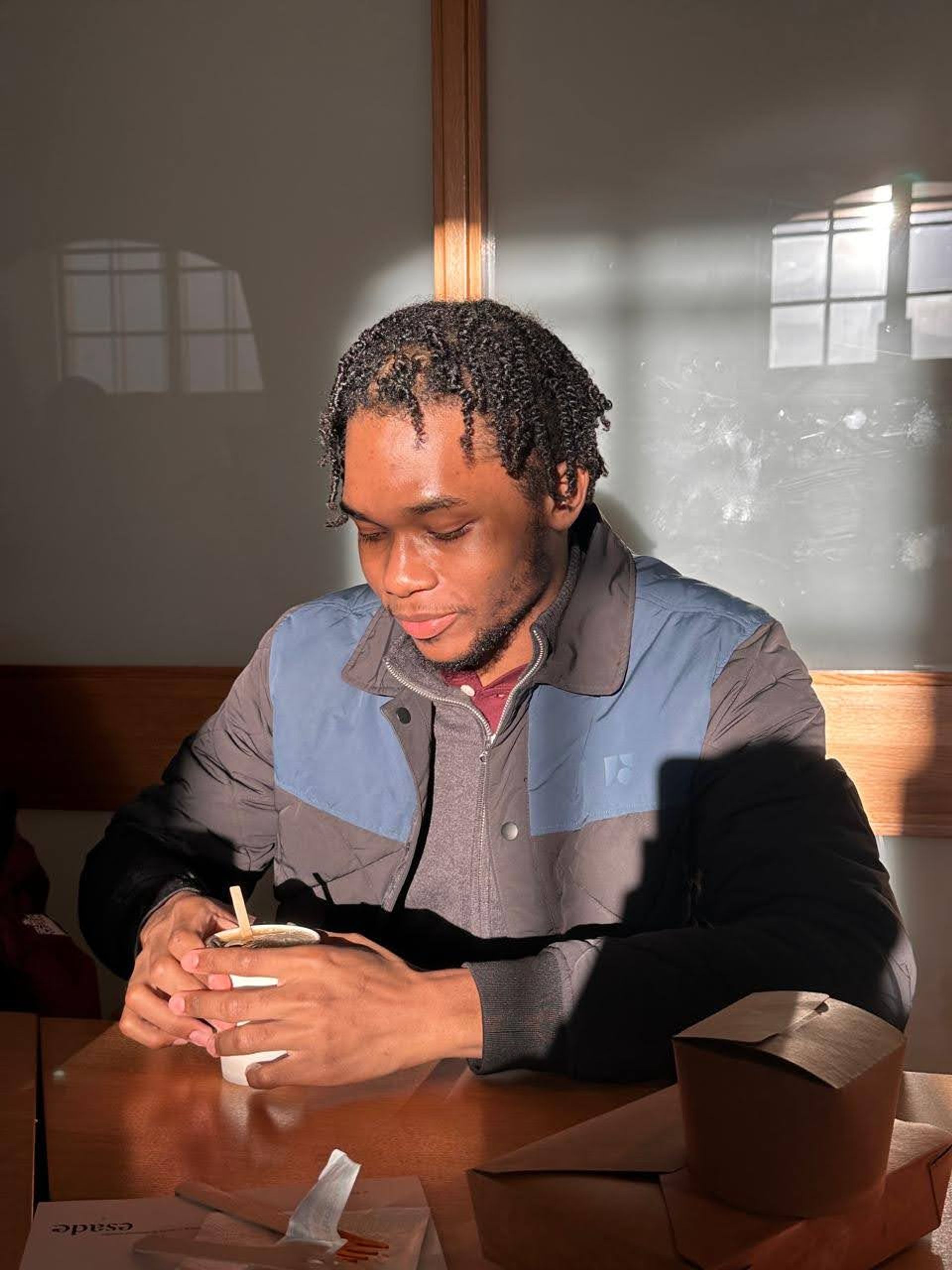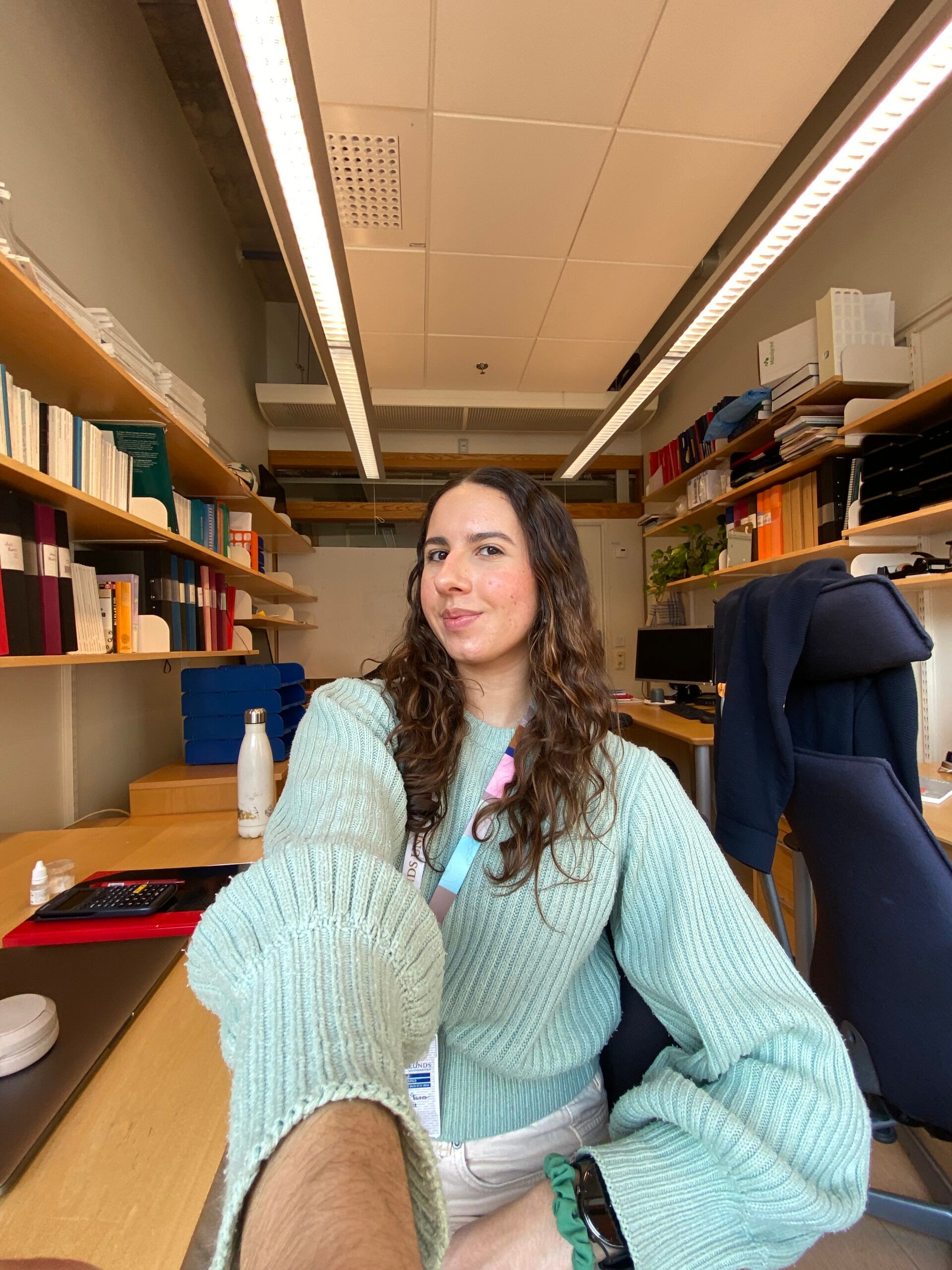
Written by Ravindu
04 Apr 2025
The final stretch of a bachelor’s degree often comes with one big question: where should you do your thesis? Many students stay at their home university. But, it is also common for some students —especially in science-related fields— to move to a different university or even an external company for their thesis. That is exactly what Manu, a third-year biomedicine student, did! She decided to pack her bags and move from Skövde to Lund University for her thesis project.
I sat down with Manu over a video call to talk about her experience, why she chose to do her thesis elsewhere, and what advice she has for students facing the same decision.
Hi! Can you introduce yourself to our readers?
““Hi, my name is Emanuelle, I’m from Brazil. I’m a Bachelor’s in Biomedicine student at the University of Skövde, but I am currently doing my thesis at Lund University.”
Manu is a fellow digital ambassador in our Instagram team, and you may know her from her vibrant Instagram story takeovers. Until recently, we were both living in the same city, in Skövde. But, starting this January, Manu moved to Lund to pursue her bachelor’s thesis there.
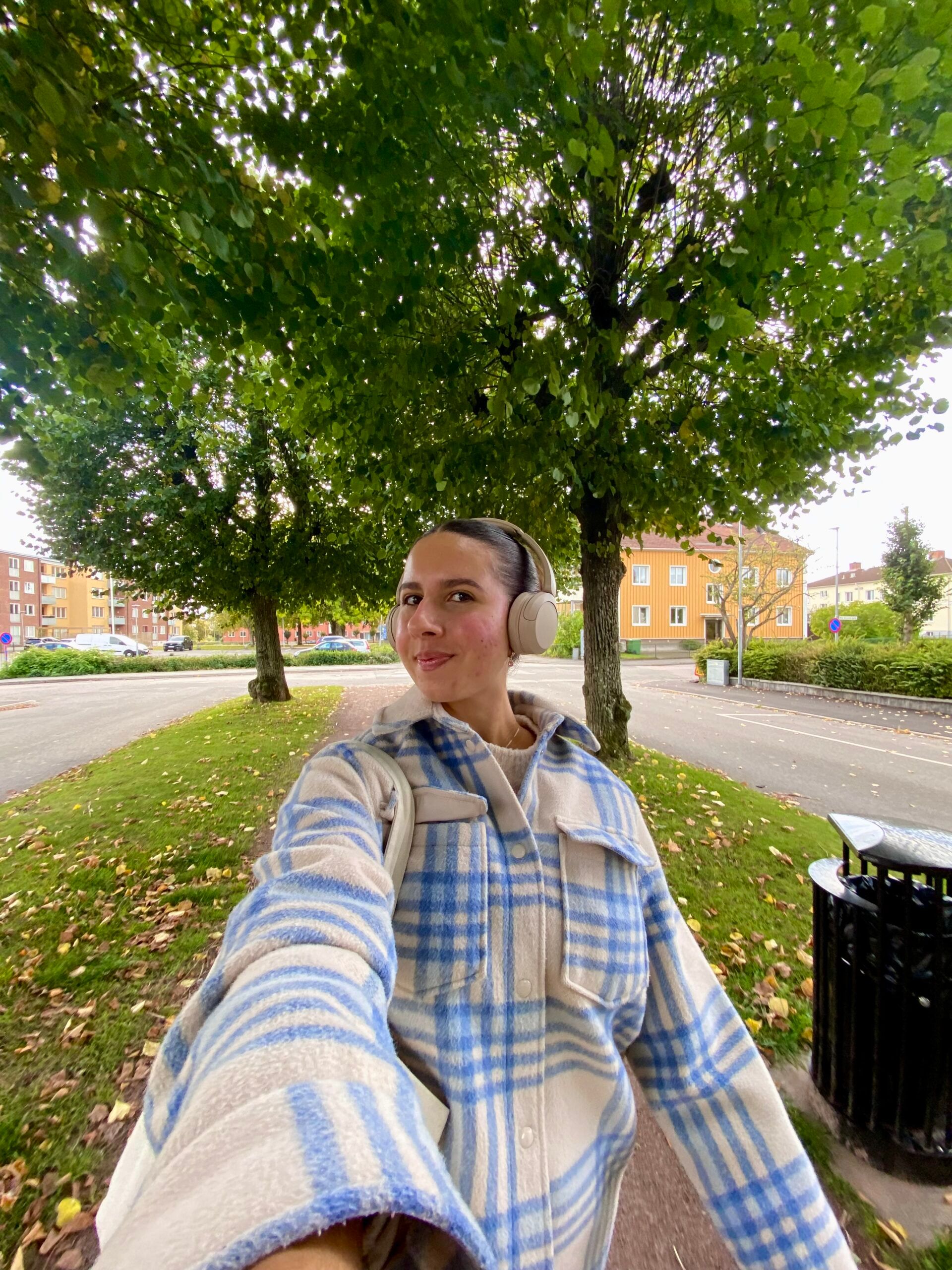
What made you choose biomedicine in the first place?
Manu said she wanted to be in the field of medical research and contribute to something that impacts people’s lives. That’s why she chose to pursue a degree in Biomedicine. This, I can relate to as well, since I’m also pursuing a career in scientific research through my education in Bioinformatics.
I asked her how her journey at the University of Skövde had been up until the thesis.
“I really enjoyed living in Skövde. It’s the city that welcomed me into the country, and it allowed me to meet so many great people and grow in many ways. It’s a small and quiet town, which is the complete opposite to where I’m from. That is what made it special. I perceived the university load to be relatively light, especially compared to how it was in my home country. I had a lot of flexibility and the courses were taught at a nice pace.”
We also talked about the support provided by the university in terms of applying externally for a thesis. I mentioned how we regularly have online webinars that give guidance and tips on the process. There are also many grants and scholarships provided if anyone wants to do their thesis outside of Sweden, which is also nice.
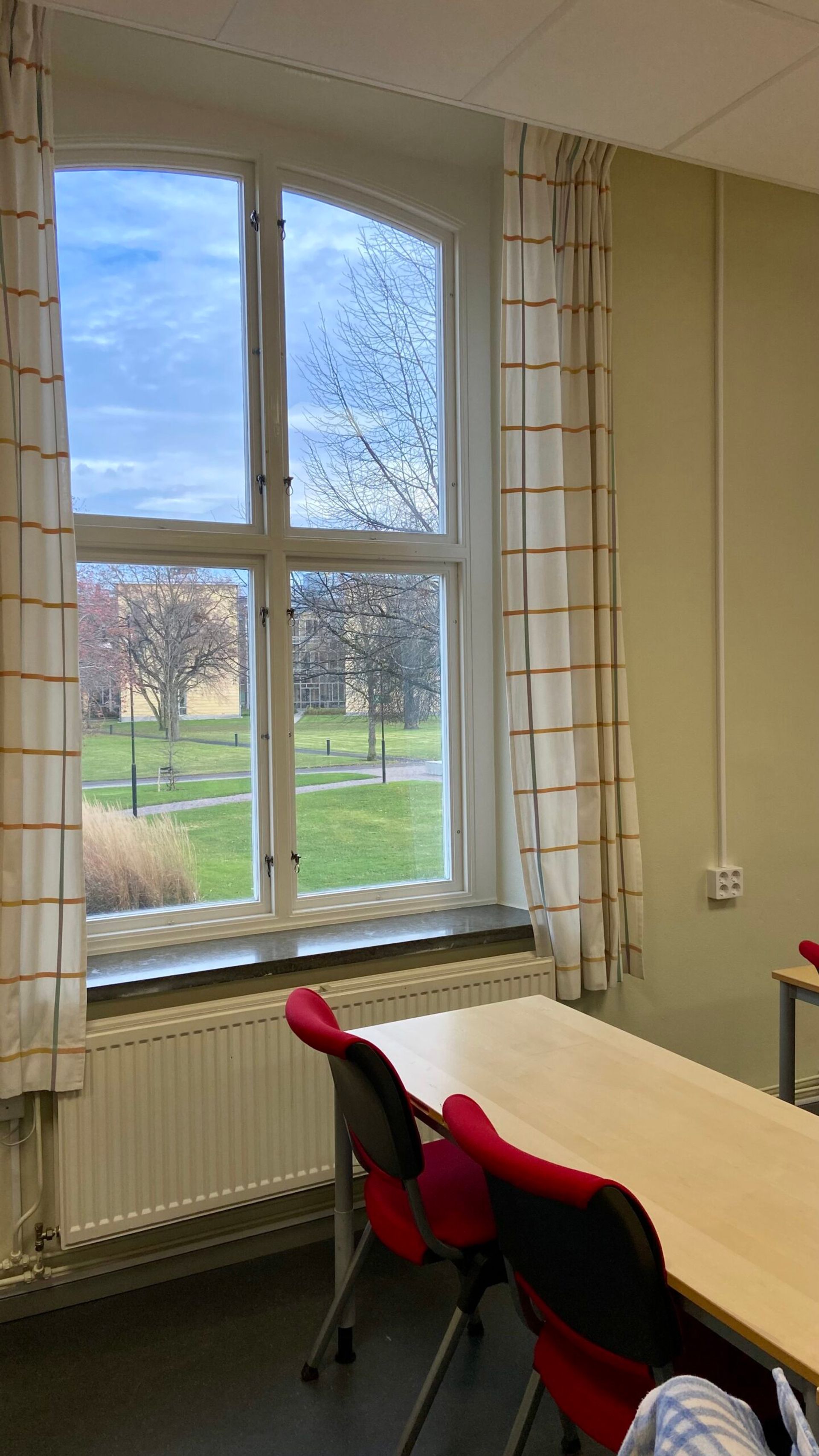
When did you start thinking about where and how to do your thesis?
Manu only started looking into thesis opportunities after the summer of her second year.
“Most of my friends found a thesis spot before summer, but I personally started actively searching for positions from August. I’d always wanted to do my thesis outside of Skövde and I knew the time to start looking for it had come!”
Lund was particularly appealing to her because she had always dreamed of studying there. If she couldn’t do a full program, at least she wanted to complete her thesis there. Another major factor was that her partner lives in Lund, so she had a place to stay, which is a big uncertainty for many students moving for their thesis.
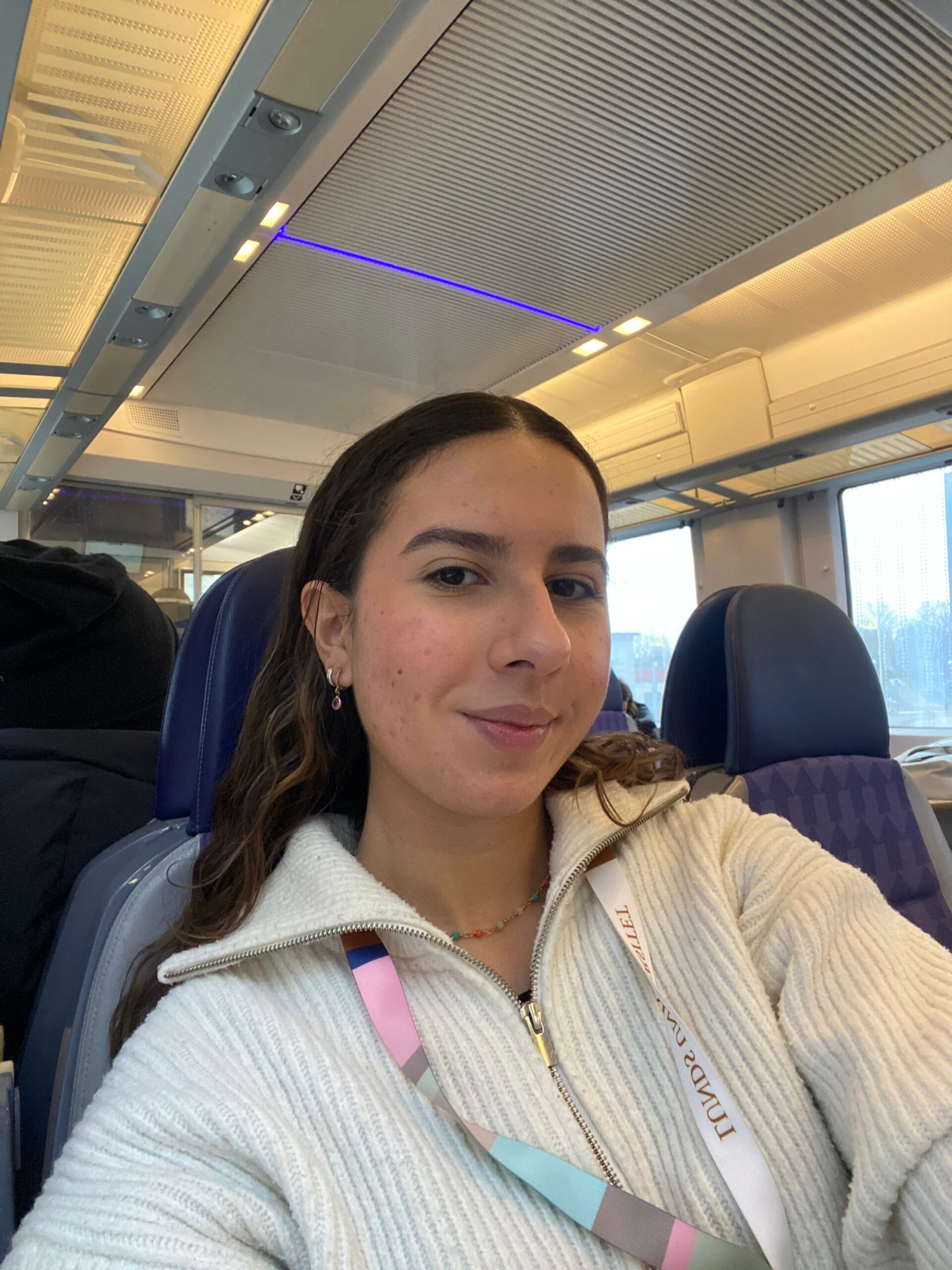
What was the application or selection process like?
She started by visiting Lund University’s website and searching for ongoing projects. She then narrowed them down to those relevant to her field before deciding which ones to apply for. Next, she emailed principal investigators (PIs), introducing herself, conveying her interests, and attaching her CV. Manu reached out to many researchers before finally getting a response from one.
Securing a position at a prestigious university like Lund is challenging, so when she got an interview, she was both nervous and excited. She was surprised at how casual the interview was.
““I thought I’d be asked many theoretical questions and all, but what the PI wanted to know more about was me – who I am as a person and why I’m interested in the field.”
She had prepared by reading up on the project and learning new scientific concepts, but none of those were actually tested. I mentioned how I recently learned that this is quite common in Swedish job interviews, where the focus is more on personality rather than solely on academic experience. Chris also touched upon this in one my previous blogs. You can read it here!
She received an answer straight away during the interview, followed by signing some documents, officially securing her place at Lund for her thesis!
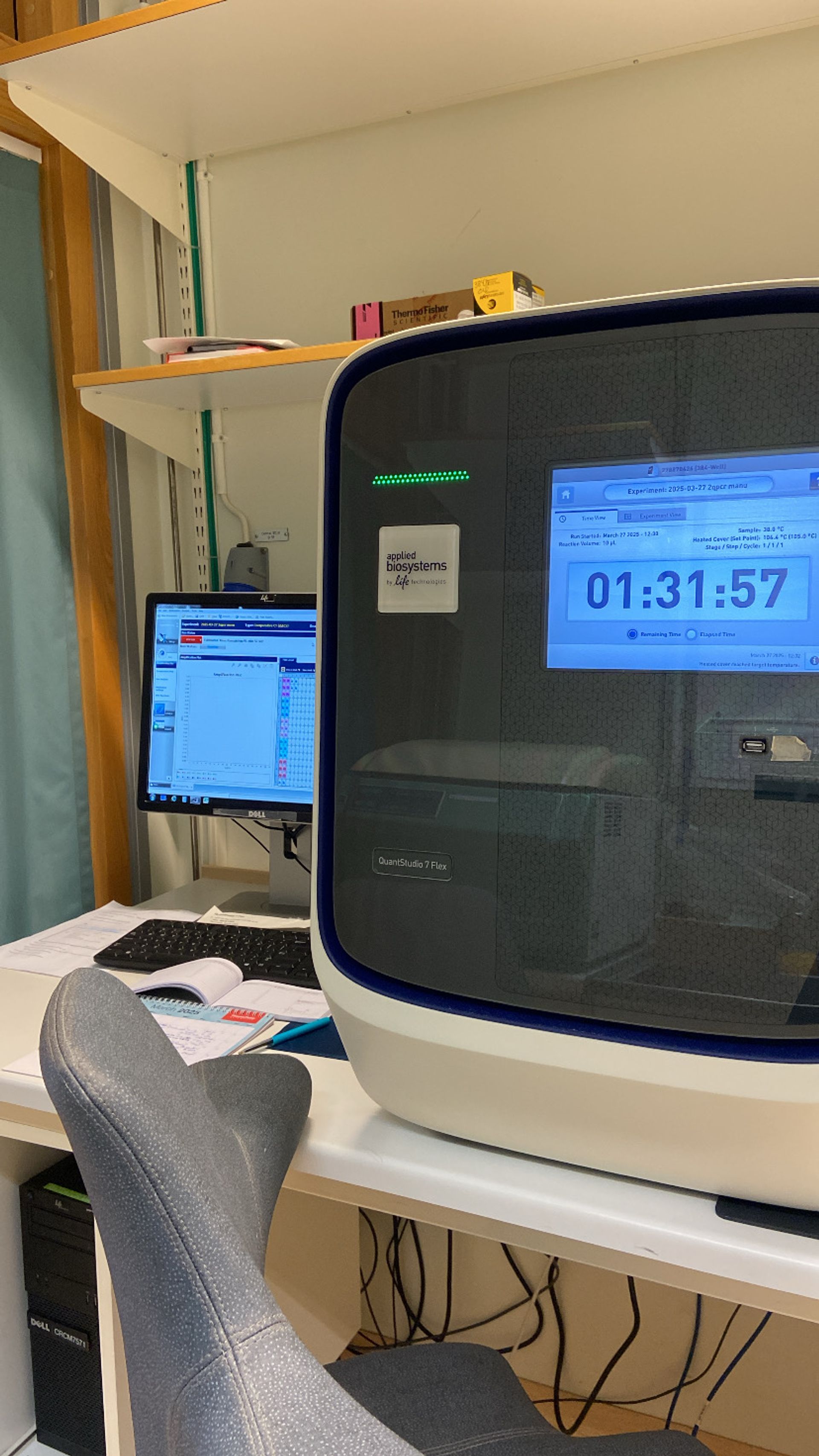
What exactly is your thesis about?
Manu is currently researching Type 2 Diabetes and exploring how a certain gene impacts the development of that condition. She is doing this at the Clinical Research Centre, Lund University. Her first few weeks were spent reading scientific articles to understand Type 2 Diabetes, the gene in question, and the lab techniques used in the project.
Most of the lab work that followed was hands-on wet lab research, but recently, she received data that required some analysis. This introduced some dry lab elements as well, which she could work on using her own computer. She mentioned that the introductory bioinformatics course she took during her bachelor’s studies in Skövde was useful for this aspect of her thesis.
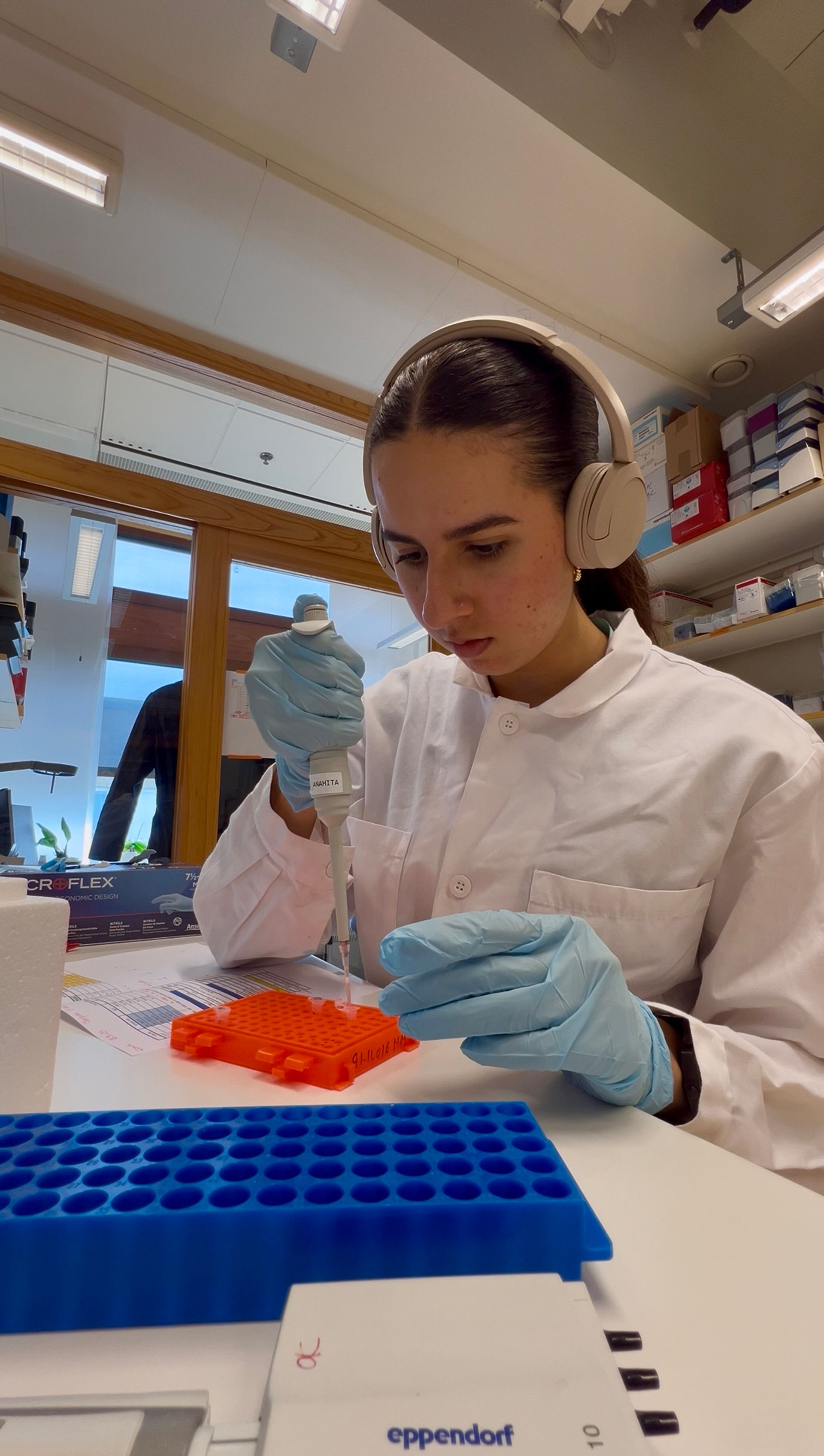
What was the biggest challenge in adapting to a new university/lab environment?
One of the biggest adjustments for Manu was the schedule and workload.
“As someone who had very few lectures per week and a lot of flexibility to go about my days, it was quite challenging to very suddenly switch to working full-time in a lab from Monday to Friday.”
She also found it difficult to adjust to working in the same place for long hours, something she is still getting used to. However, we also discussed how this more intense schedule serves as a stepping stone into a career in science and how the bachelor’s thesis prepares students for that transition.
There is some flexibility, though. She can sometimes start earlier and leave earlier, or vice versa, depending on her schedule. She also had to adjust her daily routine to accommodate her new schedule. Previously, she would go to the gym in the late afternoon, but now she usually goes in the morning before heading to the lab.
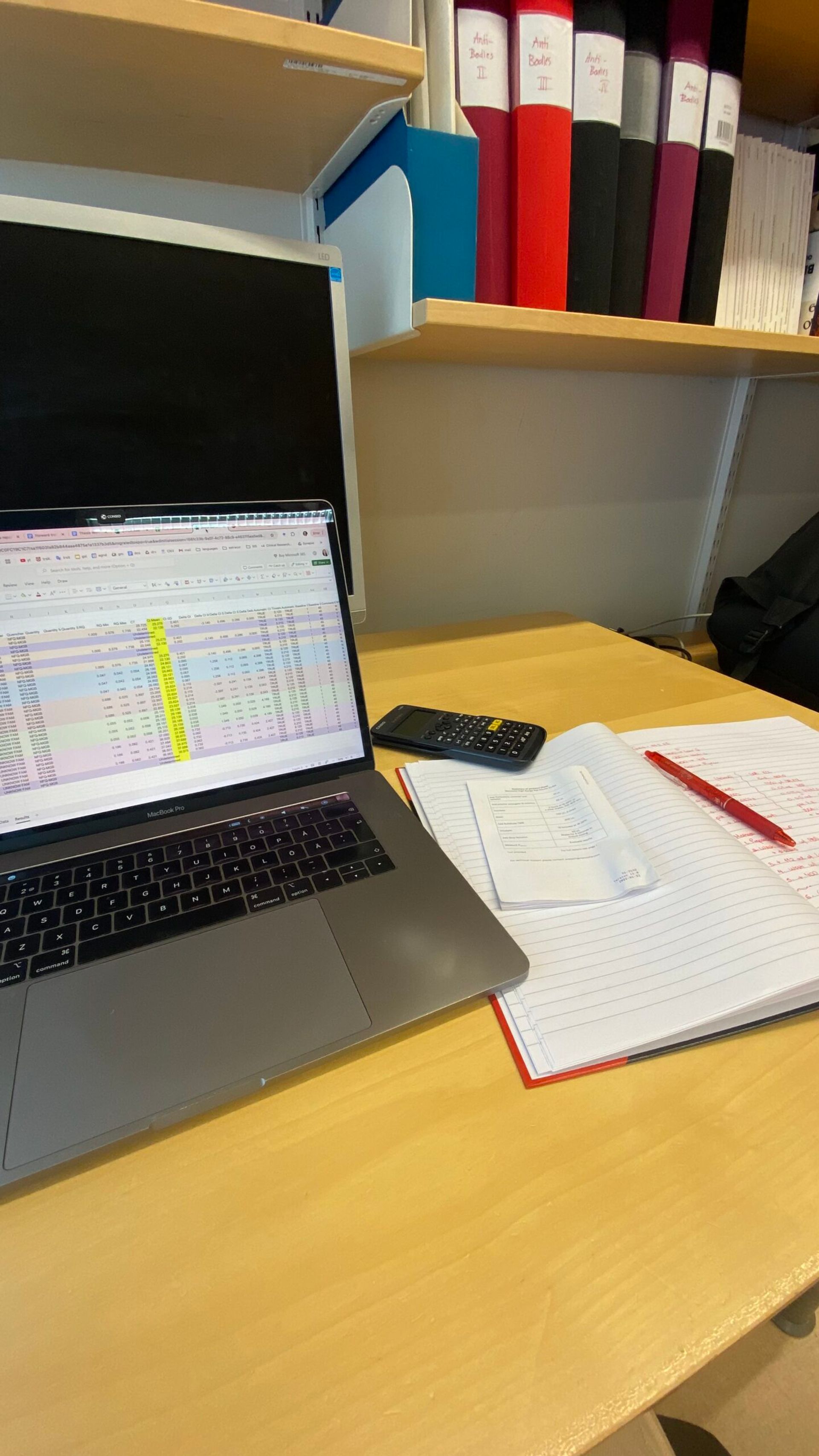
What skills have been the most important?
- Leadership and Confidence Manu mentioned that initially, everything is explained to you by the PI, but after some time, you are expected to handle tasks and carry out experiments independently. Developing leadership skills and confidence in your abilities is crucial.
- Adaptability to adjust to the new routine, to new experiments that happen every week, to results that you didn’t expect.
- Communication – of doubts that I may have to my supervisor, with my colleagues.
- Problem solving – a lot happens in the lab, and many times the experiment doesn’t work. It’s then important to think critically and solve problems as they surge.
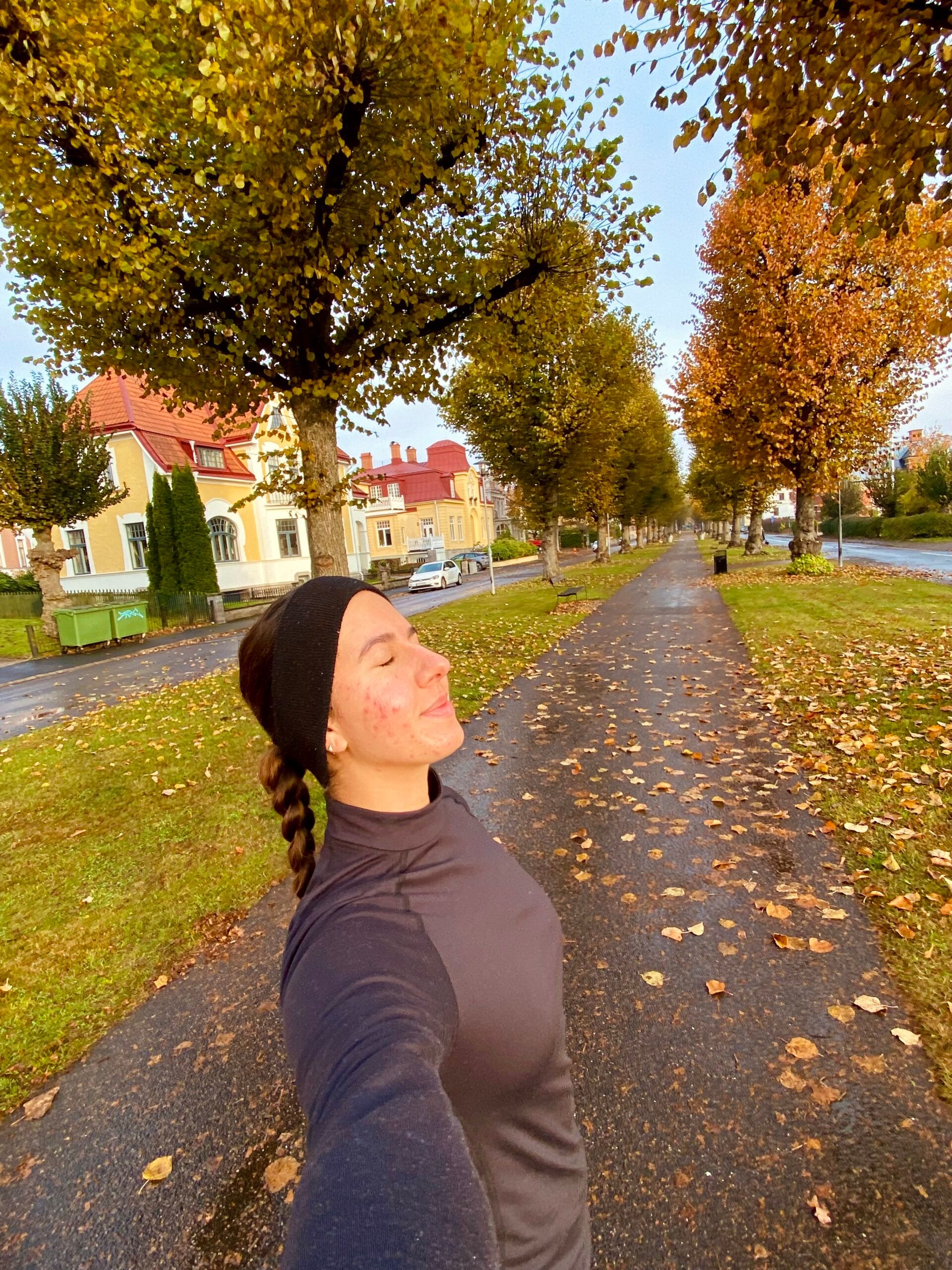
Do you think moving universities for a thesis is beneficial for students?
“Without a doubt! Moving universities for a thesis is one of the best things you can do for your network and your professional growth.”
Manu highly recommends that students try to do their thesis at a new place. It’s a totally different experience that is incredibly worthwhile. She shared how moving for her thesis made attending a scientific conference in Copenhagen possible. She joined her lab mates there. It was an opportunity she wouldn’t have had otherwise.
She also emphasized how moving for a thesis pushes you out of your comfort zone. You meet new people, build a professional network, and get exposed to different work environments. It also grants access to advanced tools and research facilities that may not be available at your home university.
For anyone considering doing their thesis in a new place, Manu’s advice is simple: go for it!
